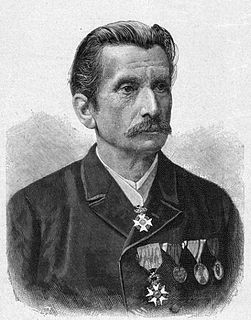A Quote by Ralph Waldo Emerson
A cultivated man, wise to know and bold to perform, is the end to which nature works.
Related Quotes
A man goes to the village to visit the wise man and he says to the wise man, “I feel like there are two dogs inside me. One dog is this positive, loving, kind, and gentle dog and then I have this angry, mean-spirited, and negative dog and they fight all the time. I don't know which is going to win.” The wise man thinks for a moment and he says, “I know which is going to win. The one you feed the most, so feed the positive dog.
Man is the one who desires, woman the one who is desired. This is woman's entire but decisive advantage. Through man's passions, nature has given man into woman's hands, and the woman who does not know how to make him her subject, her slave, her toy, and how to betray him with a smile in the end is not wise.
Wise cultivated, genial conversation is the last flower of civilization, and the best result which life has to offer us,--a cup for gods, which has no repentance. Conversation is our account of ourselves. All we have, all we can, all we know, is brought into play, and as the reproduction in finer form, of all our havings.
Man wants to see nature and evolution as separate from human activities. There is a natural world, and there is man. But man also belongs to the natural world. If he is a ferocious predator, that too is part of evolution. If cod and haddock and other species cannot survive because man kills them, something more adaptable will take their place. Nature, the ultimate pragmatist, doggedly searches for something that works. But as the cockroach demonstrates, what works best in nature does not always appeal to us.
There is no man ... however wise, who has not at some period of his youth said things, or lived a life, the memory of which is so unpleasant to him that he would gladly expunge it. And yet he ought not entirely to regret it, because he cannot be certain that he has indeed become a wise man -- so far as it is possible for any of us to be wise -- unless he has passed through all the fatuous or unwholesome incarnations by which that ultimate stage must be preceded.
the only way in which a human being can make some approach to knowing the whole of a subject, is by hearing what can be said about it by persons of every variety of opinion, and studying all modes in which it can be looked at by every character of mind. No wise man ever acquired his wisdom in any mode but this; nor is it in the nature of human intellect to become wise in any other manner.
I would not have every man nor every part of a man cultivated, any more than I would have every acre of earth cultivated: part will be tillage, but the greater part will be meadow and forest, not only serving an immediate use, but preparing a mould against a distant future, by the annual decay of the vegetation which it supports.









































